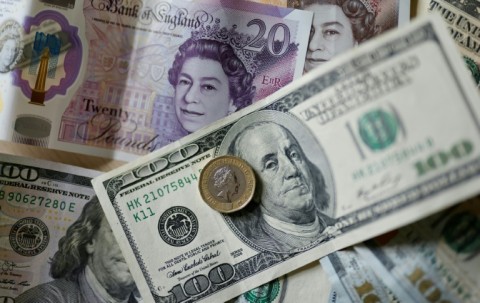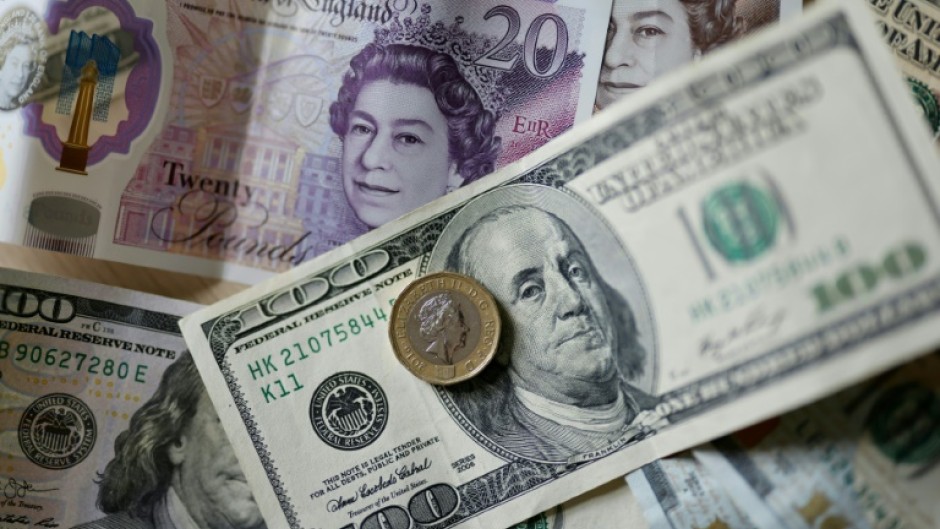
LONDON - The pound rallied and UK government bond yields rose Wednesday as the Bank of England came under criticism for fuelling market uncertainty.
The BoE insisted it would halt on Friday a short-term programme of bond-buying support aimed at quelling volatility triggered by a debt-fuelled UK budget following a Financial Times report the central bank stood ready to intervene further.
"The Bank of England's messaging to the market over the last 24-hours has been conflicted and confused, causing unnecessary gyrations to the pound and adding to the sense of instability in the markets," said Interactive Investor analyst Victoria Scholar.
On Wednesday, the yield on the government's 30-year bond returned above a relatively high level of five percent, and the yield on 10-year bonds hit 4.64 percent, the highest level since 2008 in the midst of the global financial crisis and higher than the level which prompted the BoE's bond market intervention.
The UK government's higher borrowing costs are a reflection of market unease regarding the affordability of upcoming tax cuts aimed at supporting Britain's recession-threatened economy.
The pound rose against the dollar as traders bet on more aggressive interest rate hikes from the BoE on concerns the budget of uncosted tax cuts would further fuel sky-high UK inflation.
Meanwhile, London's benchmark FTSE 100 index slumped 1.2 percent, with sentiment also dampened by news that the UK economy unexpectedly shrank in August.
Frankfurt's DAX shed 0.6 percent after the German government said it now expects the economy will contract 0.4 percent next year and inflation will run at seven percent.
Investors are struggling to find some solace as they navigate a range of crises that threaten the global economy, from soaring prices and bumper interest rate hikes to the Ukraine war and China's Covid-induced growth slowdown.
READ | Sterling swings as BoE confirms end of market support
The gloom was summed up by the International Monetary Fund, which on Tuesday highlighted the risks of inflation and the conflict in Europe as it slashed its global growth forecast and warned: "For many people 2023 will feel like a recession".
Later, US President Joe Biden admitted there was a chance the country could suffer a "slight" recession.
Investors are now nervously looking ahead to Thursday's US inflation report, with observers warning that a strong reading could spark another rout on markets.
Even if it showed inflation cooling from a four-decade high, analysts said the Fed would not likely take the single reading as reason to slow down its pace of rate hikes.
Wall Street's main stock indices fell at the open, with investors disappointed with the latest reading of the producer price index, which nudged down only a tenth of a percentage point to 8.5 percent in September on an annual basis.
The reading "will stoke concerns that there hasn't been enough improvement on the inflation front to convince the Fed to take a more guarded approach with its rate hikes," said market analyst Patrick O'Hare at Briefing.com.
Oil prices fell after OPEC trimmed its forecast for growth in oil demand this year and next by half a million barrels per day, citing "recent macroeconomic trends and oil demand developments in various regions."
OPEC pointed to "the extension of China's zero-Covid-19 restrictions in some regions, economic challenges in OECD Europe, and inflationary pressures in other key economies, which have weighed on oil demand."
OPEC and its allies including Russia last week decided to cut output by 2 million barrels per day, a move analysts had warned could backfire as any increase in prices it causes will dent demand by consumers.

